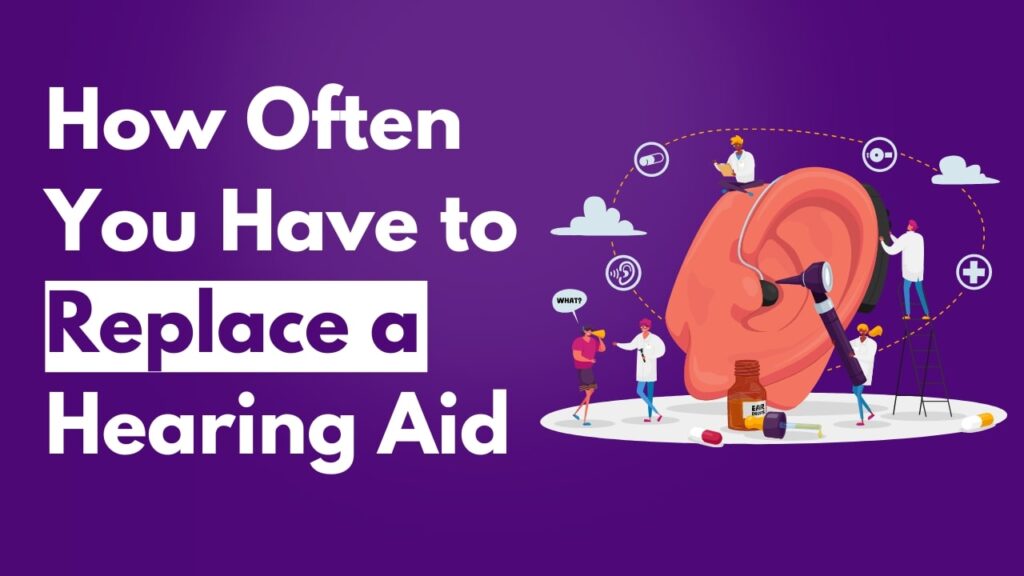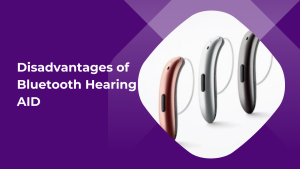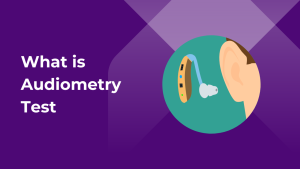Hearing aids are devices that are used for one of the delicate parts of the body i.e your ears. So, giving your hearing device a complete check is very necessary.
If you are one who has been using these hearing aids and struggling to know whether it’s time to update your hearing aids or how often you have to replace a hearing aid then read this blog till the end to know everything in detail.
How Often Do You Have to Replace a Hearing Aid?
The frequency of when to get your next hearing aid depends on several factors including the type and quality of the hearing aid, the level of care given to the device, and the user’s hearing needs.
On average, a hearing aid can last anywhere from 3 to 5 years before it needs to be replaced. However, some higher-quality hearing aids may last longer up to 7 years or more. On the other hand, lower-quality hearing aids may need to be replaced more frequently, perhaps every 2-3 years.
It is important to have your hearing aid regularly checked and maintained by a hearing healthcare professional to ensure that it is functioning properly and to extend its lifespan. In some cases, certain parts of the hearing aid may need to be replaced before the entire device needs to be replaced.
Ultimately, when to get your next hearing aid or how often people should change their hearing aid will depend on the individual circumstances of the user and the recommendations of their hearing healthcare professional.
10 Signs that indicate when you need a Hearing Aid
1. Difficulty hearing or understanding conversations, especially in noisy environments or when people are speaking softly.
2. Frequently asking people to repeat themselves or misunderstanding what they are saying.
3. Struggling to follow conversations on the phone or television.
4. Difficulty hearing high-pitched sounds, such as children’s voices or alarm clocks.
5. Constant ringing or buzzing in the ears (tinnitus).
6. Avoiding social situations or feeling isolated due to hearing difficulties.
7. Struggling to hear or understand in crowded or noisy places, such as restaurants or parties.
8. Difficulty hearing or understanding someone speaking from another room.
9. Struggling to hear or understand someone who is speaking with an accent or dialect.
10. Straining to hear or understand conversations or missing important information in meetings or classes.
How to find out when to get your next Hearing Aid?
There are many reasons why people decide to replace their current hearing aids. It is important to find out when to get your next Hearing Aid. A lot of people replace their existing hearing aids when they feel like they need better sound quality, improved features, or increased comfort. Sometimes, you may want to get your next hearing aid if it is broken or damaged in some way.
Here are 6 reasons that indicate when you have to replace your hearing aid
1. Decreased sound quality: If you notice that the sound quality of your hearing aid has decreased significantly, it may be time to update your hearing aid. This could include muffled or distorted sounds, or difficulty understanding speech.
2. Reduced volume: If you find that you need to turn up the volume on your hearing aid more frequently than before, it could be a sign that it is no longer functioning at its optimal level and it’s time to update your hearing aid.
3. Physical damage: If your hearing aid has visible damage, such as cracks, dents, or moisture damage, it may be time to update your hearing aid.
4. Increased difficulty with daily tasks: If you are having difficulty hearing and communicating in your daily life, and your hearing aid is not providing the necessary support, it may be time to update your hearing aid.
5. Age: Most hearing aids have a lifespan of approximately 5-7 years. If your hearing aid is approaching this age, it may be time to update your hearing aid.
6. Changes in your hearing: If you have experienced significant changes in your hearing, such as a sudden decline in hearing ability, a replacement hearing aid may be necessary to properly address your needs.
Overall, if you are experiencing any issues with your hearing aid or changes in your hearing, it is important to consult with a hearing healthcare professional to determine the best course of action.
How often should Hearing Aids be checked or cleaned?
Hearing aids should be checked and cleaned at least once a month, or more often if needed. This can be done by the user at home or by a hearing healthcare professional. It is important to regularly check and clean the hearing aids to ensure they are functioning properly and to prevent any damage or build-up of earwax or other debris.
Ultimately, the best hearing aid for you and how often you have to replace a hearing aid will depend on your specific needs and preferences. It is important to consult with an audiologist to determine which hearing aid is the best fit for you and when to get your next hearing aid.




